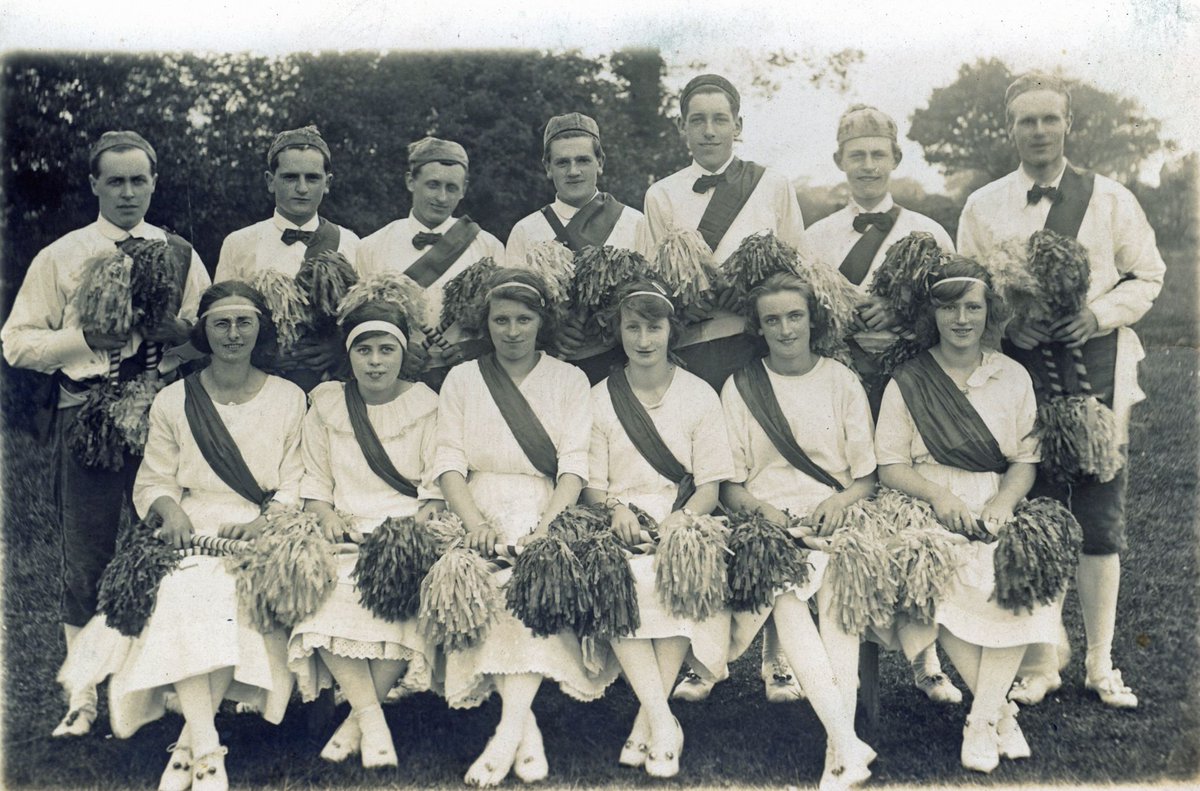The other day I saw that a horrible pro-fascist website was using a photo from my archive (and barely paraphrased text from my research) to advocate for morris dancing as part of a ‘return to native’ British values. It made me feel sick: this is NOT what the folk arts are about.
However it did make me think more about the so-called ‘culture wars’ and how the right’s current highly selective and regressive idea of preservation has parallels with that of the early folk movement, which was also predicated on notions of an embattled culture under threat.
At the turn of C19 the British ruling classes were alarmed by the rapid spread of industrialisation and what they perceived as its deleterious effect on the indigenous culture. (Not coincidentally, this was also an era of mass colonisation and heightened fears about the Other).
The folk movement promised to ‘salvage’ Britain’s ‘pure’ national character before it was ‘too late’. Viewing folk collecting as an urgent but finite project, they set out to preserve the culture of (some)working-class folks, deemed too irresponsible to ensure their survival.
We are greatly indebted to past collectors from whom we inherited a wonderful collection of songs, dances + stories. But we also know that they were often highly selective in their approach, excluding practices viewed as unimportant and sanitizing content they found unacceptable.
This is how we ended up with a contemporary canon of folk performances and customs that marginalise and exclude women, non-white and LGBTQ communities.
The big problem with straight preservation is that it’s uncritical – we end up preserving whatever bigotries and exclusions were / are commonplace at the time.
This is why I get frustrated when I see ‘folk’ used as shorthand for cosy /quaint. If you’re going to employ complex & implicated terms like folk you need to do so informedly & critically. You need to continually acknowledge their problematic histories and exclusionary present.
I believe that folk—as the power of things we make, do and think for ourselves—can be harnessed as a radical force for good in the world.
But for this to happen, we need to apply it expansively and inclusively: otherwise we risk being complicit *not only* in reinforcing the inequities of the past but also replicating them in the present day.
Folk is not an escape from the complexity of contemporary life, but—if properly reclaimed—it might play a part in finding a way forwards. #FolkAgainstFascism

 Read on Twitter
Read on Twitter


